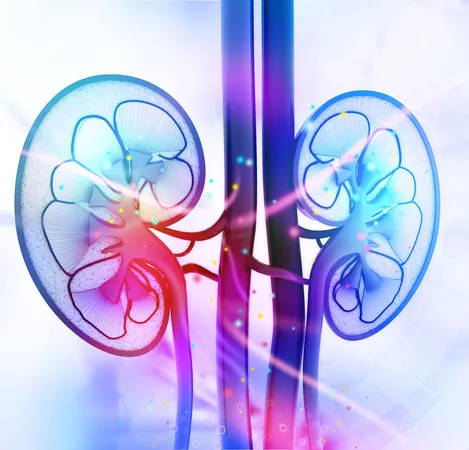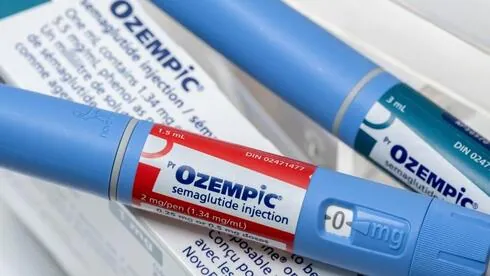
How COVID-19 Could Steal Your Kidney Health: Shocking New Findings!
2025-04-01
Author: Mei
Recent findings are turning heads in the medical community, revealing a startling connection between COVID-19 and the heightened risk of advanced chronic kidney disease (CKD) in patients who initially showed no signs of acute kidney injury (AKI).
This extensive study utilized data from nearly 300,000 adults diagnosed with either COVID-19 or influenza to scrutinize the long-term renal repercussions of the virus.
Study Overview
Conducted by researchers from the College of Medicine at National Sun Yat-sen University in Taiwan, the study found that even individuals without a prior history of AKI are vulnerable to significant kidney issues after a bout with COVID-19. "Evidence has established that patients who develop AKI during acute COVID-19 face an increased risk of subsequent CKD," stated Kuo-Chuan Hung, pointing to a crucial gap in our understanding of the long-term effects on COVID-19 survivors who did not experience AKI during their infection.
COVID-19's Impact Beyond Respiratory Effects
Initially recognized for its respiratory impacts, COVID-19's ability to wreak havoc on multiple organ systems, particularly the kidneys, is now becoming alarmingly clear.
Utilizing the TriNetX Healthcare Commercial Organizations database—a global network of electronic health records from 133 healthcare organizations—researchers focused on adult patients aged 18 and over who had at least two outpatient visits between 2022 and 2023.
Participant Screening and Results
After a thorough screening process that eliminated dual infection cases and patients with prior advanced renal dysfunction, the study yielded 636,264 participants with COVID-19 and 141,737 with influenza. To achieve reliable results, researchers matched participants from both groups according to age, sex, race, and comorbidities, ultimately analyzing 141,587 patients in each cohort.
The shocking results? During the first six months post-infection, patients diagnosed with COVID-19 faced significantly higher rates of AKI (0.25% vs. 0.08%), advanced CKD (0.14% vs. 0.07%), and reduced estimated glomerular filtration rate (eGFR) measurements below 60 mL/min/1.73 m². This troubling trend continued beyond six months, with differences remaining statistically significant after a full year.
Demographic Findings and Hospitalization Effects
Diving deeper, the analysis revealed gender dynamics at play; both men and women presented a greater incidence of kidney issues linked to COVID-19 compared to those who had influenza. Strikingly, younger adults (under 45) exhibited a negligible risk for advanced CKD, while those over 45 showed pronounced disparities in kidney health after 12 months of follow-up.
Interestingly, hospitalization during COVID-19 was also a critical factor: those admitted showed increased risks for both AKI and eGFR levels below 60 mL/min/1.73 m², although advanced CKD rates did not escalate in hospitalized patients compared to those not admitted.
Conclusion and Call for Action
The researchers concluded that urgent emphasis should be placed on developing targeted interventions for high-risk groups, alongside greater understanding of the mechanisms causing varied types of kidney dysfunction.
The implications of these findings are monumental, as emerging data suggest long-term health problems associated with COVID-19 may be far more widespread than initially understood. This calls for immediate attention from healthcare professionals and policymakers alike to ensure effective long-term monitoring and management of kidney health for COVID-19 survivors.



 Brasil (PT)
Brasil (PT)
 Canada (EN)
Canada (EN)
 Chile (ES)
Chile (ES)
 Česko (CS)
Česko (CS)
 대한민국 (KO)
대한민국 (KO)
 España (ES)
España (ES)
 France (FR)
France (FR)
 Hong Kong (EN)
Hong Kong (EN)
 Italia (IT)
Italia (IT)
 日本 (JA)
日本 (JA)
 Magyarország (HU)
Magyarország (HU)
 Norge (NO)
Norge (NO)
 Polska (PL)
Polska (PL)
 Schweiz (DE)
Schweiz (DE)
 Singapore (EN)
Singapore (EN)
 Sverige (SV)
Sverige (SV)
 Suomi (FI)
Suomi (FI)
 Türkiye (TR)
Türkiye (TR)
 الإمارات العربية المتحدة (AR)
الإمارات العربية المتحدة (AR)